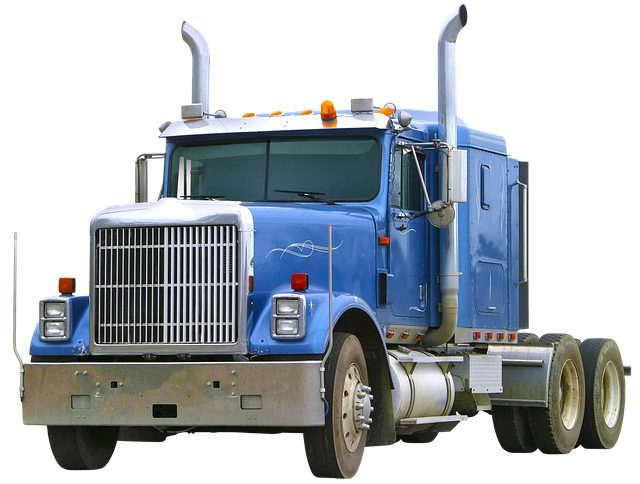Small trucking companies struggle with accessing affordable, tailored insurance due to their size, diverse operations, and specific liability needs. They face challenges finding cost-effective customized insurance solutions, including cargo insurance, liability protection, and workers' compensation. Partnering with insurers specializing in small fleet insurance offers the ideal solution by providing personalized trucking policies and flexible plans to safeguard vehicles, drivers, and cargo. This ensures trucking business protection while mitigating risks associated with varying workloads, diverse vehicle types, and regional regulations.
Small trucking companies face unique challenges that require specialized attention. This article delves into the specific liabilities and risks these businesses encounter, from managing variable workloads and diverse vehicle types to navigating regional regulations. We explore why customized insurance is crucial for their survival, highlighting tailored policies that offer better protection and cost savings. Additionally, we guide readers through creating flexible trucking insurance plans and discuss available small fleet insurance solutions, emphasizing their impact on the financial health of these vital operations.
Understanding the Unique Risks of Small Trucking Operations

Small trucking companies often find themselves navigating a unique set of challenges when it comes to risk management and insurance. Unlike their larger counterparts, they may struggle to access cost-effective and customized insurance solutions that fit their specific operational needs. This is where the importance of tailored trucking coverage becomes evident.
These businesses require flexible trucking insurance plans that can adapt to their diverse operations, including specialized cargo insurance for unique cargo types or situations. Personalized trucking policies that offer comprehensive protection, from vehicle damage and liability to workers’ compensation, are essential in mitigating potential risks. By understanding these unique risks and partnering with insurers who specialize in small fleet insurance solutions, small trucking companies can ensure they have the right tools to protect their business and maintain competitive edge.
– Highlight common challenges faced by small trucking companies

Small trucking companies often find themselves navigating a unique set of challenges that can be overwhelming. One of the primary difficulties is acquiring suitable insurance coverage tailored to their specific needs and budget. Unlike larger competitors, they may struggle to access affordable customized insurance plans that offer comprehensive tailored trucking coverage. This leaves them vulnerable to financial risks associated with cargo damage, accidents, or legal liabilities.
Additionally, small fleets typically have limited resources for risk management. They require personalized trucking policies that protect their investments in vehicles and drivers while also covering potential losses related to cargo. Accessing flexible trucking insurance plans that cater to these unique circumstances can be a significant hurdle, making it crucial for them to seek specialized solutions from insurers who understand the intricacies of the trucking industry.
– Discuss variable workloads, diverse vehicle types, and regional regulations

Small trucking companies often find themselves navigating a complex landscape when it comes to their insurance needs. One of the primary challenges they face is variable workloads, which can range from steady, long-haul routes to sporadic, short-distance deliveries. This inconsistency makes it difficult to secure tailored trucking coverage that offers the right balance between cost and comprehensive protection.
Moreover, small fleets typically operate a diverse range of vehicle types, from pickup trucks to semi-trucks, each with its own set of risks and requirements. This diversity necessitates personalized trucking policies that can adapt to the unique needs of each vehicle and driving scenario. On top of this, regional regulations vary widely, adding another layer of complexity. Small businesses must ensure their insurance complies with local laws and industry standards, which can differ significantly from one state or province to another. These factors underscore the need for small fleet insurance solutions that are flexible, comprehensive, and specifically designed to meet the unique liabilities faced by these trucking companies.
The Benefits of Customized Insurance for Small Truckers

Small trucking companies often find themselves in a unique position where off-the-shelf insurance policies may not offer the comprehensive protection they need. This is where customized insurance plans step in as a game-changer. By tailoring trucking coverage to suit the specific needs of these businesses, insurers can provide peace of mind and significant cost savings.
Tailored trucking coverage allows small fleet owners to protect their investments, including vehicles, cargo, and drivers. Personalized trucking policies can include specialized provisions for various risks, such as cargo insurance, liability protection, and even specific coverage for common issues faced by the trucking industry. Flexible trucking insurance plans offer the advantage of scalability, enabling businesses to adjust their coverage as their fleet grows or requires different levels of protection.
Small trucking companies face distinct challenges that require specialized solutions. By understanding the unique risks, such as variable workloads and regional regulatory pressures, customized insurance becomes an indispensable tool for safeguarding these businesses. Tailored trucking coverage offers flexibility and protection tailored to diverse vehicle types and specific operations. Adopting personalized trucking policies enables small fleet owners to navigate uncertainties with confidence, ensuring their business remains protected against potential liabilities. Ultimately, accessing flexible trucking insurance plans allows them to thrive in a competitive market by mitigating risks and fostering growth.
